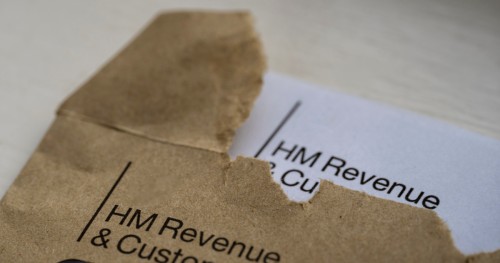Why should freelancers open a business bank account?

I remember my first day of freelancing as if it were yesterday, writes freelance writer and member of the Starling content team since 2017, Charlotte Lorimer.
On that cold February morning in 2019, I woke up early, made myself a cup of tea and wrote my to-do list. Almost at the top was a very important (and easy) task: opening a business bank account.
Why? Because keeping business finances and personal finances separate can save a lot of time and stress when it comes to filling out your tax return. It can also make paying yourself a monthly 'salary' more straightforward if that's how you want to manage your freelance finances. And it can be a great psychological marker of being open for business.
With the speed of online application processes, by the time the kettle had boiled for my second cup of tea, I had finished filling out my business account application. I received my debit card just a few days later.
Avoiding mixing business with pleasure
As a sole trader, there's no legal obligation for me to have a business account. If I were registered as a limited company, that would be a different story. Even so, I felt it was important to open a business account to keep my freelance finances organised and separate from personal finances.
Every time I raise an invoice, I provide the details of my business account so that incoming funds related to my freelance writing are kept separate from my personal bank account, which I use for everyday spending. When an invoice is paid, I receive an instant notification on my phone. I then plan ahead for my tax return by saving a third of the amount I've received, for tax and National Insurance, by moving that portion into a ‘separate space’.
By the time it comes to paying my tax return, I've usually built up more than enough to cover it. Before the deadline, I simply move the funds from my ‘separate space’ back into my main balance and make the payment.
I've also set up a number of direct debits and standing orders from my business account, mainly because I work from home and can claim back a portion of my energy bills and WiFi when I do my tax return. Similarly, if I top up on stationery or buy train tickets for a business trip, I make those payments from my business account and make a note of what the payment was for. This can often be done straight from banking apps on your mobile phone – such as Starling.
I can also add a photograph of a receipt if I buy a laptop charger or pay for coffees for myself and a potential client. Anything business-related goes through my business account, which keeps everything tidy and organised.
Riding the waves of unpredictable income
Lots of people who are self-employed earn different amounts each month. This can make budgeting for rent, bills and groceries much trickier. But if you have a business account, you may find it easier to simulate receiving a monthly salary.
If you're just starting out, it may be difficult to know how much your average earnings will be. I would recommend calculating how much you need to cover your rent, bills, groceries, essential travel and a small amount for entertainment and shopping. Then aim to transfer this amount from your business to your personal account at the start of each month and keep the remainder in your business account as a buffer.
Having two accounts - one business, one personal - really helps me keep my spending consistent. If everything were in one account, it would be much more tempting to overspend on some months, something I could easily end up regretting.
Freelancing as a profession
The third reason I chose to open a business account was to feel more professional. Writing was no longer a hobby, it was my full-time job and I wanted to put structures in place to mark that shift.
Another tool that's really upped my professional game is some banks have a toolkit that can help you manage your business effectively such as the one I use: Starling's Business Toolkit. Starling business customers can sign up through the app and gain access to tools for creating and tracking invoices, estimating tax and managing bills. There can be an extra cost for this.
Invoices are quick and easy to create and look beautifully professional. They include all the necessary information plus your business logo. When a payment is received, the Toolkit suggests which invoice it could be for. You can then confirm this match by logging on to Online Banking through your laptop.
Whether you're new to freelancing or looking to make managing your finances less of a headache, opening a business account could make a world of difference and there is no need to visit a branch or fill out any paperwork - everything can be done through a mobile app.
Charlotte was using the Starling Bank app: you can find out more and sign up here.



Comment
Log in or create your account to react to the article.